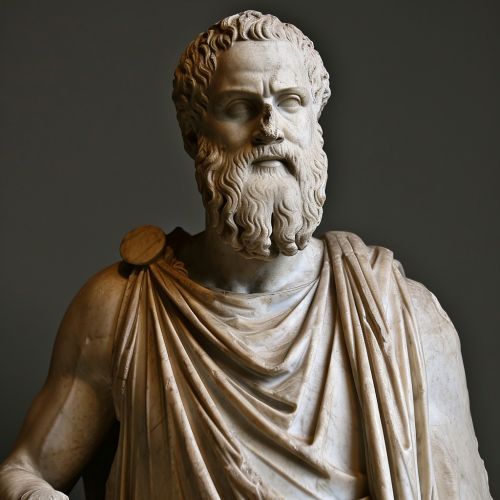Thales of Miletus
Early Life
Thales of Miletus was born in the ancient city of Miletus, located in present-day Turkey, around 624 BC. His parents, Examyes and Cleobuline, were of Phoenician origin. There is little known about his early life, but it is believed that he was involved in politics and business before turning his attention to philosophy and science.
Education and Influences
Thales was self-taught, and his education was largely based on travels to Egypt and Babylonia, where he learned about astronomy and geometry. He was influenced by the teachings of the Egyptians and Babylonians, and he is credited with introducing their scientific and mathematical concepts to Greece.
Contributions to Philosophy
Thales is often recognized as the first philosopher in Western history. He proposed that the fundamental nature of all matter is water. This idea, though seemingly simplistic by today's standards, represented a significant departure from the mythological explanations of the natural world that were prevalent in his time. Thales' philosophy was based on observation and logical reasoning, rather than on religious beliefs or superstition.
Contributions to Mathematics and Science
Thales made significant contributions to the fields of mathematics and science. He is credited with the discovery of five basic theorems in geometry, including the theorem that states that a circle is bisected by its diameter. He also predicted a solar eclipse in 585 BC, which marked one of the first recorded instances of scientific prediction.
Later Life and Death
In his later years, Thales continued to contribute to various fields of knowledge, including politics and law. He died around 546 BC, but his ideas and teachings continued to influence generations of thinkers, including his successors in the Milesian school of philosophy.
Legacy
Thales' legacy is significant and far-reaching. His philosophical ideas laid the groundwork for later philosophers, such as Plato and Aristotle. His contributions to mathematics and science helped to establish these fields as distinct areas of study. His emphasis on logical reasoning and empirical observation set the stage for the scientific method.


